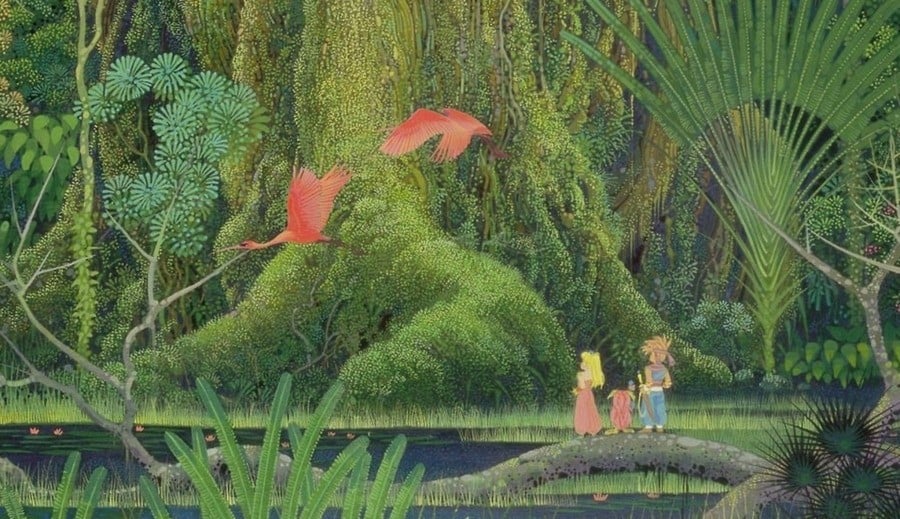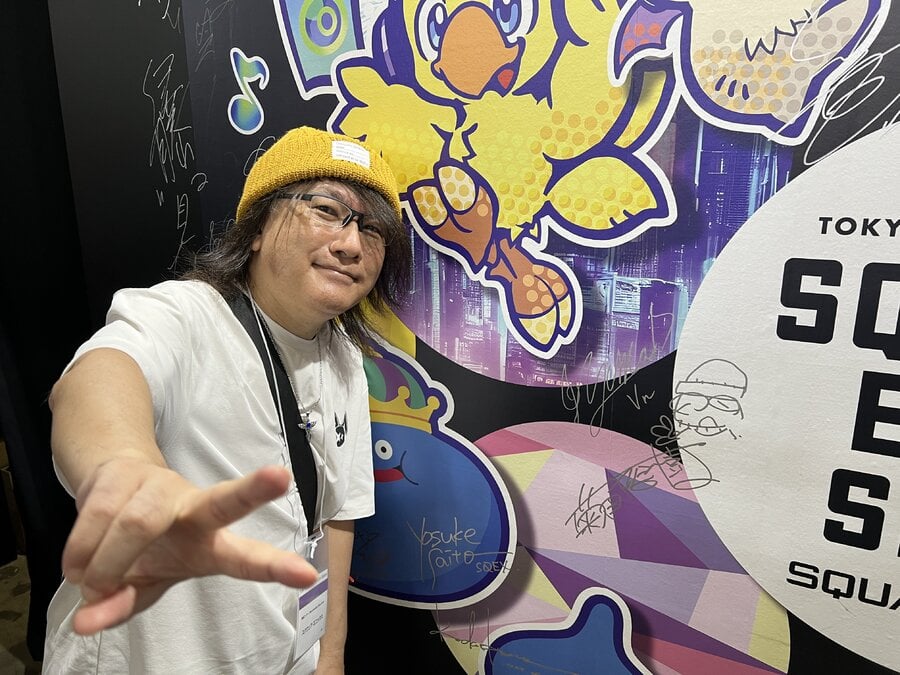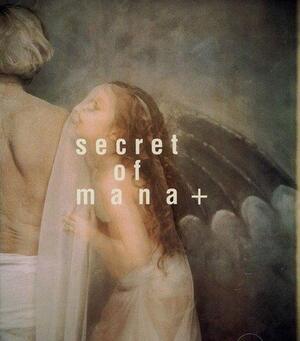
Recently, we at Time Extension had the opportunity to interview the Secret of Mana and Trials of Mana (Seiken Densetsu 3) composer Hiroki Kikuta, talking about his early influences, his work on the popular RPGs, and his approach to composing.
The legendary Japanese musician is an individual whose music we've admired for decades now and is someone who will probably need no introduction if you have an extensive knowledge of the role-playing genre. But for those who don't, it's probably best that we give a quick overview of his career before we dive deeper into our conversation, in the hopes that it may get across why he has become such a respected and admired artist in the field.
For the uninitiated, Hiroki Kikuta originally began his video game career at Square in the early 1990s, where his first couple of jobs were debugging Final Fantasy IV, and creating sound effects for the 1992 RPG Romancing SaGa. From there, he would later go on to compose the iconic soundtrack for The Secret of Mana (which was released in 1993), as well as provide some extraordinary music for another two titles from the company: Trials of Mana (1995) and the action role-playing title Soukaigi (1998).
In 1997, he left Square to form his own development studio, Sacnoth, where he later wrote, directed, and composed the music for the 1998 PS1 horror RPG Koudelka. However, he ended up leaving shortly after its completion to pursue other creative possibilities, including a career as a freelance musician.
Since then has continued to release new music (under his own private record label Nostrillia, as well as Scarlet Moon Records) and has contributed to various independent game projects, including 2019's Indivisible and the upcoming Infinity Knights: Xross. He has also continued to be involved with various projects related to the Mana series, including 2014's Rise of Mana (where he contributed a guest track), remakes of Secret of Mana and Trials of Mana, and the most recent title, Visions of Mana.
Our conversation here is mostly related to his work on the Super Nintendo, but we hope that it may potentially act as a gateway for people to explore more of his music, both inside and outside of gaming.
Time Extension: To start, we’d love to get more of a background on how you were first introduced to music. Could you give us some examples of the types of artists you were listening to growing up?
Kikuta: The first thing I want you to imagine is that back when I was a child, there was no Internet or YouTube. There were only very limited ways for me to experience music. It was mainly radio broadcasts, and as you know, when listening to radio broadcasts, you cannot freely choose content. So I just sat in front of the radio and listened to the music playing from the speaker forever.
Sometimes it was innovative jazz played by Bill Evans. Sometimes it was country music imported from America. Sometimes it was traditional Japanese folk music. And sometimes it was Georg Philipp Telemann's Trumpet concert. But it didn't matter to me. I just wanted to immerse myself in music, I wanted to experience the immersion of unknown music. As a boy in the countryside, I was so hungry for music. And, because I was hungry, I was able to absorb all kinds of music. It can be said that this is very different from those who are now trying to learn music.

Time Extension: You’ve mentioned before in interviews that you are a self-taught musician. What was your first piece of musical equipment that you ever owned that set you on your way to becoming a musician? Also, what techniques did you find useful for developing your musical skills without a formal musical education?
Kikuta: The classical guitar that I had at home when I was a child was my first piece of musical equipment. I didn't learn it from anyone, but I think that practicing playing the guitar and composing in my own way helped my musical talent blossom greatly. There is no formal music education in the world of rock or folk. However, the passion to be moved by music and want to play music is important. So the most useful technique for developing musical skills without formal musical education is to have passion. There is no difficulty that beats passion.
Time Extension: In the past, we’ve read online that, before getting into games, some of your earliest composing gigs were actually writing music for TV shows. Is that correct?
Kikuta: That's true. When I was in my twenties, I did various jobs such as comic writing and mechanical design, but I also worked to compose BGM for TV anime.
Time Extension: In that case, how familiar were you with the world of video games when you started applying for jobs in the games industry? Did you have any favourite video game titles?
Kikuta: I have loved video games since I was in college. At that time, there were no consumer game consoles in the world, so I always went to the game center and played with a 100 Yen coin. My favorite game is The Tower of Druaga (NAMCO). I remember being deeply moved by the background music (BGM) created by Junko Ozawa, but, of course, the simple and difficult game system is also wonderful.
At that time, I didn't think I would also get a job making game music. Destiny is a mysterious thing.
Time Extension: Could you talk to us a little about how you ended up getting the job at Square? Do you have any memories of what that process was like?
Kikuta: I applied for a recruitment advertisement in a magazine called Login. I didn't know anything about the game industry.
Firstly, I applied for a job advertisement for a company called Falcom, but unfortunately, I was not selected. But then I applied for a job advertisement for a company called Square, who contacted me and said that they wanted to have an interview. It was Nobuo Uematsu and Kenji Ito who I met face-to-face at the interview. I remember talking passionately about progressive rock and, after that, I was lucky enough to receive a notification of acceptance and decided to go to work. At first, I wore a business suit to work, but no one in Square wore such a thing. I remember being very surprised.
Time Extension: How did you originally land the job writing music for Secret of Mana? Is it true that your colleague Kenji Ito was supposed to handle the soundtrack?
Kikuta: At that time, Square had 3 development departments. It took about 2 years to develop one game, and it was a rule that the composer would be in charge of one game from start to finish. It was a natural flow that Uematsu-san was in charge of the #1 development, Ito-san was in charge of the #2 development, and I was in charge of the #3 development. I didn't expect to be with the game Secret of Mana for such a long time. I think encounters and relationships are mysterious coincidences.
Time Extension: What were some of the biggest differences you found between composing music for TV and composing for games?
Kikuta: The background music written for anime or TV is composed for the purpose of expressing the excitement of the drama and changes in emotions. The background music of video games is composed to express the land, culture, ethnic group, and worldview. But this is the very important part — the background music of video games can be listened to as many times as users want. Even if it's great music, if you listen to it endlessly, everyone will get bored. Therefore, it can be said that an essential theme and feature of composing music for video games is learning how to create music that never gets tired or boring.
Time Extension: Could you describe what your musical setup was like at the time you were composing Secret of Mana? Did you have any go-to equipment you used to create your samples for the game?
Kikuta: If I try to explain it properly, it could take days or weeks. As everyone can imagine, it is a very difficult task to make the most of the performance of SNES and create music that impresses people.
Specifically, the sampler device I found myself using often was called the AKAI S900. The sample collection dedicated to the S900 was something I regularly relied upon. The samplers at that time had very little memory, so the technicians behind them would often store the sound of good instruments in just a small amount of data.
Time Extension: Do you remember what the very first piece of music was that you created for Secret of Mana?
Kikuta: I believe it was The Child of the Fairy Tribe. But, Secret of the Arid Sands was the first to actually be incorporated into the SNES.
Time Extension: Since its initial release, the Secret of Mana soundtrack has gone on to become beloved by many players. When did you first realize that the soundtrack had become embraced by RPG fans and wasn’t simply going to fade away?
Kikuta: It was only many years later that I realized. When the game was first released, there was no reaction from the public or fans. So I often wonder why I spent a lot of time and energy creating an arrangement version called Secret of Mana+ without any response.

I'm sure the long development period of two years put a lot of stress on my heart. And I think the energy of that dissatisfaction made me create a 50-minute work that is completely free and produces melodies with the movement of the heart.
Yes, in short, I wanted to tell you that music is free. I wanted to convey the wonderfulness of freedom, what that feels like, and give you a sense of its irreplaceable importance.
Time Extension: There have been a lot of amazing reinterpretations of your work from Secret of Mana over the years. This year, for instance, saw the release of EXCALIBUR: A Tribute to Secret of Mana – a tribute album celebrating your work from Scarlet Moon Productions. Do you have any favourite reinterpretations of your music from that most recent album?
Kikuta: To be honest, I feel that every song and every arrangement is really great. I'm really happy that the children of the past have now gained enough musical experience and acquired their skills and sense.
I can't give A and B in front of such high-level works, but if I dare to choose one arrangement I like, it is Mana Brasilis's rendition of Into the Thick of It. I love Bossa Nova music and the attractive harmonies. It is an adventure full of surprises for me to see them reconstruct my music with such a surprising interpretation.
Time Extension: Following your work on The Secret of Mana, you obviously went on to work on the game’s sequel Seiken Densetsu 3 (Trials of Mana). How did your approach to its music differ from the first game, if at all? Was there more or less pressure the second time around?
Kikuta: The music of Secret of Mana and the music of Trials of Mana were created based on completely different concepts.
Secret of Mana's music was perfect for me. But I knew that if I made the music of Trials of Mana maintaining the same direction, I would never be able to surpass the music of Secret of Mana. But that was a stern fact rather than pressure.
So when I created the music of Trials of Mana, I prepared a completely different concept. Almost all of the songs are produced with 6 simultaneous pronunciations. As you may realize if you think about it for a moment, there were very few sounds available to me. If you use 1 note for bass drums and snare, 1 note for bass guitar, and 1 note for hi-hat, there are only 3 notes left. I can't convey how difficult it is to express melodies and harmony with those three notes.
Time Extension: You still maintain a close relationship with Square, working with them on various Mana-related projects to this day. But you’ve also been incredibly busy elsewhere, working as a guest composer/composer on various independent projects. One recent example of this is Infinity Knights: Xross — a 3-player co-op adventure that is inspired by games like Secret of Mana and Trials of Mana. What has the experience been like working on this project? Is there a specific philosophy that has shaped your approach to the game’s music?
Kikuta: Game music is not established on its own. It is a music that is devised and produced for the purpose of how attractively the world of the game is expressed. Therefore, the approach to that is fundamentally different from the usual approach to making music.
In normal music, the performer is the protagonist, but in-game music, the game is the protagonist and the player is the protagonist. Therefore, what I have to do most carefully is not to express myself, but to be close to the game, think about the game, learn about the game, expand the imagination of the game, and above all, love the game. Creating for someone is not the same as creating for yourself. And it is full of indescribable joy. I would like to continue to make wonderful music for many game designers.
Time Extension: Just as a final question, do you have any other exciting projects in the pipeline that you can talk about? We noticed you are currently attached to a Japanese stage adaptation of Seiken Densetsu 3 (Trials of Mana). Is it too early to comment on what your involvement with this project will be?
Kikuta: No matter what kind of job you get, it's important to try to keep the secrets about that job. I believe that trust is a treasure that beats anything.
Time Extension: Understood! Thank you again Kikuta-san for answering our questions! We look forward to hearing more about your upcoming projects when the proper time comes.
If you would like to keep up to date with Kikuta-san's work, you can follow him now on Twitter.







